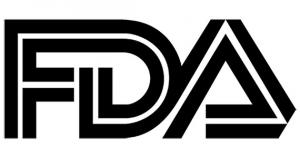Also Big: Several decades later than they should have, the FDA *finally* lifts ban on gay/bisexual men donating blood

Huh. The folks at the FDA seem to be quite the busy bees this week:
FDA Finalizes Move to Recommend Individual Risk Assessment to Determine Eligibility for Blood Donations
Today, the U.S. Food and Drug Administration finalized recommendations for assessing blood donor eligibility using a set of individual risk-based questions to reduce the risk of transfusion-transmitted HIV. These questions will be the same for every donor, regardless of sexual orientation, sex or gender. Blood establishments may now implement these recommendations by revising their donor history questionnaires and procedures.
This updated policy is based on the best available scientific evidence and is in line with policies in place in countries like the United Kingdom and Canada. It will potentially expand the number of people eligible to donate blood, while also maintaining the appropriate safeguards to protect the safety of the blood supply.
These final recommendations are consistent with the policy initially proposed in January. The FDA worked diligently to review and consider all comments submitted to the agency to finalize these recommendations as quickly as possible.
This is absurdly long overdue. The FDA originally banned gay and bisexual men from donating blood for life back in 1983 when there was no reliable way of screening blood for HIV infection. It might have made some sense at the time (some would argue that as well), but accurate screening tests were developed over the next several years. Since then there have been repeated attempts to eliminate the ban, to no avail for decades. It was kept in place as late as 2010. Then, via the Human Rights Campaign:
In December 2015, the Food and Drug Administration (FDA) moved from a lifetime ban on gay and bisexual men donating blood to a deferral of one year for any man who has had sex with another man during the past 12 months. According to the Food and Drug Administration, this pre-screening eliminates up to 90 percent of donors who may be carrying a blood-borne disease.
On April 2, 2020, the Food and Drug Administration (FDA) announced that it was updating its policy regarding blood donations from men who have sex with men (MSM), reducing the deferral period from 12 months to three months.
Finally, today, they eliminated the donation ban specific to gay/bisexual men entirely, in favor of a blanket 3-month deferral on anyone deemed to be high risk. The specifics may sound like splitting hairs but it's hugely important in terms of removing one of the many stigmas LGBTQ+ folks face:
This policy eliminates time-based deferrals and screening questions specific to men who have sex with men (MSM) and women who have sex with MSM. Under the final guidance issued today, all prospective blood donors will answer a series of individual, risk-based questions to determine eligibility. All prospective donors who report having a new sexual partner, or more than one sexual partner in the past three months, and anal sex in the past three months, would be deferred to reduce the likelihood of donations by individuals with new or recent HIV infection who may be in the window period for detection of HIV by nucleic acid testing.
Additionally, under these final recommendations, those taking medications to treat or prevent HIV infection (e.g., antiretroviral therapy (ART), pre-exposure prophylaxis (PrEP) and post-exposure prophylaxis (PEP)), will also be deferred. Though these antiretroviral drugs are safe, effective, and an important public health tool, the available data demonstrate that their use may delay detection of HIV by currently licensed screening tests for blood donations, which may potentially give false negative results. Although HIV is not transmitted sexually by individuals with undetectable viral levels, this does not apply to transfusion transmission of HIV because a blood transfusion is administered intravenously, and a transfusion involves a large volume of blood compared to exposure with sexual contact. As stated in the guidance, individuals should not stop taking their prescribed medications, including PrEP, or PEP, in order to donate blood. The FDA remains committed to evaluating additional data and new technological developments as they become available to inform our donor eligibility recommendations.
The FDA has been evaluating alternatives to time-based deferrals for MSM and helping to facilitate the generation of scientific evidence that would support an individual risk based- assessment blood donor questionnaire. This scientific information has given the agency a solid foundation to support this new policy. The FDA strongly believes the implementation of an individual risk-based approach will not adversely affect the safety or availability of the U.S. blood supply.
The FDA carefully reviewed numerous data sources, including data from countries with similar HIV epidemiology that have implemented an individual risk-based approach for assessing donor eligibility, surveillance information obtained from the Transfusion Transmissible Infections Monitoring System, performance characteristics of nucleic acid testing for HIV and the FDA-funded Assessing Donor Variability And New Concepts in Eligibility (ADVANCEExternal Link Disclaimer) study. The ADVANCE study examined the rates of HIV risk factors, such as anal sex and rates of HIV infection, as well as the usage of medications to treat or prevent HIV infection, among MSM study participants.
How to support my healthcare wonkery:
1. Donate via ActBlue or PayPal
2. Subscribe via Substack.
3. Subscribe via Patreon.



